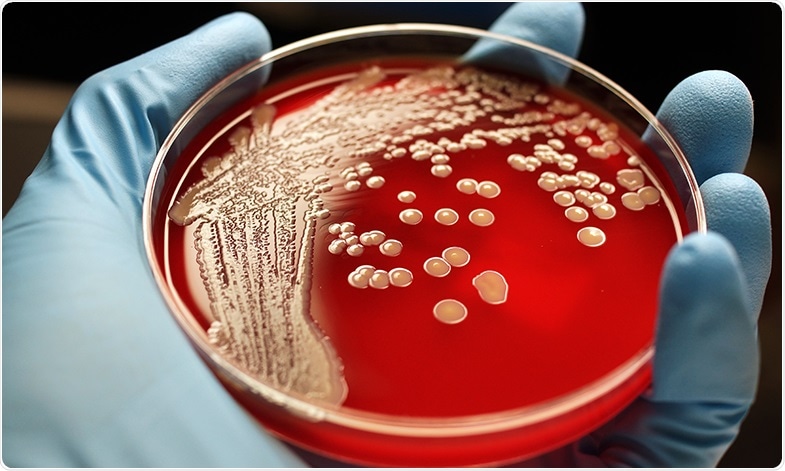At the University of Sheffield, researchers have discovered that genetic mutations that occur in MRSA enable it to evolve and turn out to be more resistant to antibiotics like penicillin.

Image Credit: University of Sheffield.
Published in the PLOS Pathogens journal, the study discovered that genetic mutations that occur in MRSA are enabling the microbes to become extremely resistant to antibiotic drugs without decreasing the potential of the bacteria to cause diseases.
A majority of the clinical MRSA shows a reduced level of antibiotic resistance because the cells acquire a novel gene encoding a protein called MecA that makes its cell wall, and hence a few strains can develop increased resistance and present a serious threat.
Methicillin and penicillin are antibiotics that do not attach properly to the MecA protein, which means they cannot “kill” the microorganisms. The subsequent stage of this study is to figure out how this kind of protein functions with other factors inside the microorganisms to enable a higher level of resistance to antibiotics.
Study findings could provide new opportunities to further understand the evolution and cause of resistance to antibiotics, and will help scientists create new drugs and treatments for MRSA.
Antibiotics have been a mainstay of human healthcare for over 70 years, but the emergence of antimicrobial resistance is now a global catastrophe. In order to combat antimicrobial resistant organisms, we have to understand them. Our work uncovers the complex mechanisms that underpin resistance, giving insight into how we might tackle this global challenge.”
Simon Foster, Study Principal Investigator and Professor, Department of Molecular Microbiology, University of Sheffield
The study is part of a collaborative project known as the Physics of Antimicrobial Resistance, which includes the Universities of Sheffield, Cambridge, Edinburgh, and Newcastle, and financially supported by UK Research and Innovation (UKRI).
The research provides a new outlook into the process of evolution of resistance and reveals important details of how MRSA is so resistant. We can now exploit these findings to develop new cures.”
Dr Viralkumar Panchal, Study Lead and Postdoctoral Researcher, University of Sheffield
Throughout the world, the effectiveness of antimicrobial compounds is reducing as infectious species become more and more resistant. The Florey Institute for Host-Pathogen Interactions at the University of Sheffield is aiming to create a world-class focus on antimicrobial tolerance from rudimentary science to translation and bring together clinicians and researchers to address this issue.
Source:
Journal reference:
Panchal, V. V., et al. (2020) Evolving MRSA: High-level β-lactam resistance in Staphylococcus aureus is associated with RNA Polymerase alterations and fine tuning of gene expression. PLOS Pathogens. doi.org/10.1371/journal.ppat.1008672.